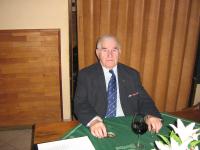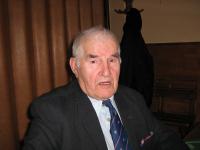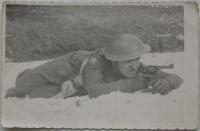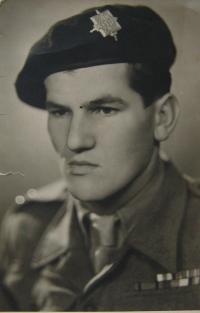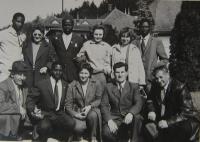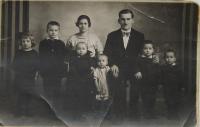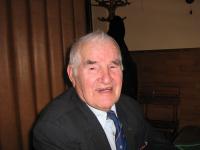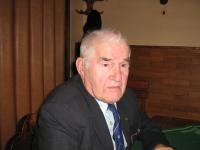We spoke French at home

Stáhnout obrázek
Mr. Karel Volena was born in 1923 in Lom town in Most region (Northern Bohemia). He comes from ethnically mixed marriage. His father - named Matěj - was Czech and his mother - named Matilda - was Italian. During the Great Depression period the family moved to Northern France (Sallaumines town) where they could get a job. In May of 1940 after the German invasion to France they ran away to the Sothern France just like most of the people. Karel Volena returned to Sallaumines then and lived there until 1944. After the landing of the Allies in Normandy he applied immediately for the Czechoslovak independent brigade. He has been assigned to the tank battalion. Their military training in England visited also the Czech Minister of Foreign Affairs Jan Masaryk. He talked to the soldiers about their troubles. Karel Volena didn‘t speak Czech at that time though. All he knew was few words from his army friends. When Jan Masaryk asked him: ´How are you? ´ He answered: ´Okay, dude. ´ Everything was explained fortunately and he could spend nice evening full of French conversation with Jan Masaryk. After their military training he has been sent to Dunkirk town. He didn‘t participate in the local German crew siege for too long though. He received an order to clear the Le Havre port from the landmines by using his tank. He returned to Czechoslovakia only in the mid May in 1945. The rest of his family followed him shortly after that. He remained in the army for five years after the end of the war. Besides others, he also worked as a translator during the French colonial pilots training in Přerov town. He also spent many years within the ČSAD (The Czech transportation services - translator‘s note) in Prostějov town. He was the chief of the repairs workshop. He visited France and his childhood home town Sallaumines many times. Later, he lived in Prostějov town. Karel Volena passed away on November, 26th, 2013.
